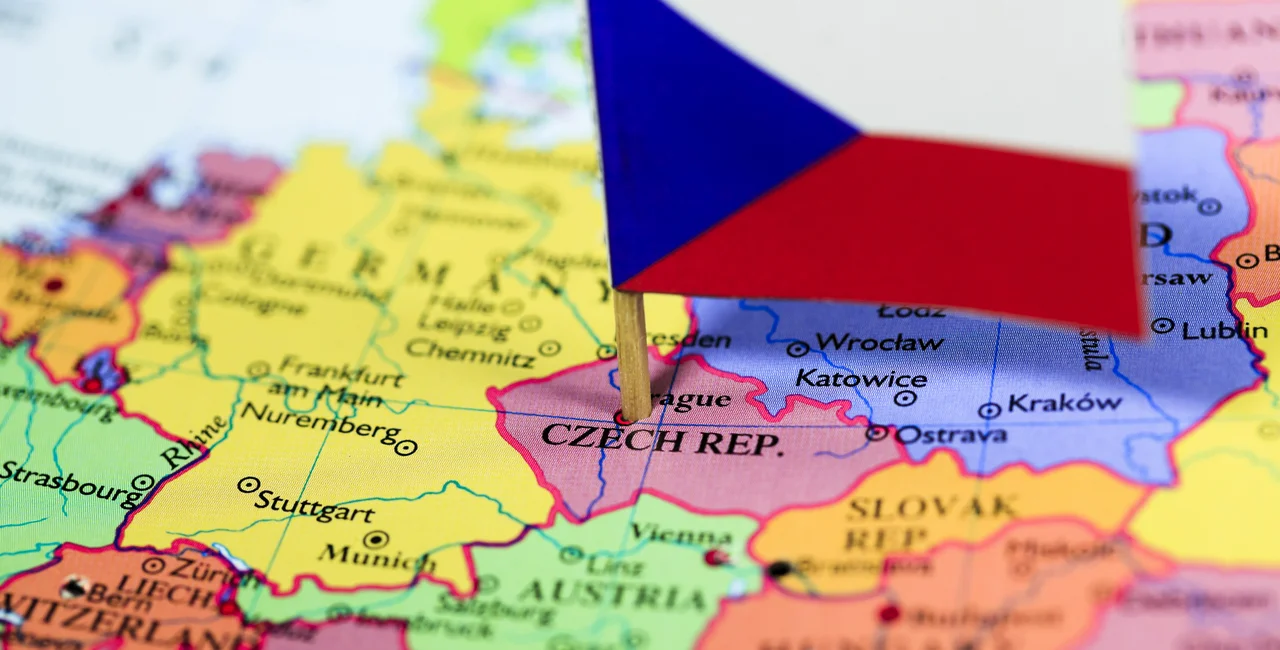While the debate over Czechia versus the Czech Republic still gets people’s dander up, a third option has been thrown into the mix and is already sparking sharp reactions. Economist and author Tomáš Sedláček is advocating changing the country’s name to Bohémie in the Czech language, which would become Bohemia internationally. This would end the Czechia/Czech Republic debate once and for all.
“Few countries, few people have a name that is also a characteristic, a description. The name of a few countries is meaningful, let alone sympathetic," he said in an opinion piece for daily Hospodářské noviny earlier this month.
PARTNER ARTICLE
He goes on to point out that place names like France or Austria are nice, but have no instantly recognizable intrinsic meaning.
“And then there's Bohemia, the name of our people, a beautiful name that not only sounds beautiful but means something, describes us. Being a Bohemian is a life attitude, slightly exuberant, enjoying life artistically. What other nation would give for that? I'm from Bohemia, a God-blessed land, I'm a Bohemian,” he said.
Sedláček plays a little with words. While “bohem” in Czech means “with God,” derived grammatically from “Bůh,” the name Bohemia is thought by most scholars to come from the Celtic tribe Boii. The first reference to something like Bohemia comes from ancient Roman historians, referring to the land where the Boii lived.
The economist adds that the new name would have greater resonance with outsiders, as they already have some associations with the word “Bohemia.” A Czech-Moravian proposal would become a Bohemian one. The sound of the phrase “president of Bohemia” also seems to carry more weight than the “president of Czechia.”
Which name do you prefer?
A benefit Sedláček doesn’t mention is that many outside observers confuse Czechia and Chechnya – and this is the key argument put forth by some who favor using the long name the Czech Republic instead of Czechia.
Following the Boston bombing in 2013, for example, the Czech Foreign Ministry had to issue a statement pointing out the suspect was not Czech. “The Czech Republic and Chechnya are two very different entities – the Czech Republic is a Central European country; Chechnya is a part of the Russian Federation,” the statement said.
Reaction to Sedláček’s idea has been mixed to say the least. A response piece in Hospodářské noviny by Vladimír Baar, a political geographer from the University of Ostrava, called the idea a satirical joke.
He points out the name “Česko” goes back to 1918, when the earliest spelling of Czechoslovakia was “Česko-Slovensko.” He adds that the short name “Česko” was accepted by UN in 2016, ending the need for further debate.
“Connecting Czechs with the bohemian lifestyle is fun in itself. … It is just a cover for condemning the English equivalent of Česko, which is Czechia,” Baar said.
While Baar doesn’t expand on that comment, the idea of the bohemian lifestyle is often traced to Puccini’s opera “La bohème,” and the 1851 book it is based on, “Scenes of Bohemian Life” (Scènes de la vie de bohème). Both are about poor artists living in Paris, and not what is now the Czech Republic. The idea of bohemian meaning a carefree artistic lifestyle is thought to have been inspired by Romani people who arrived in France from Bohemia in the early 1800s.
Baar further states that Sedláček has been critical of the name Czechia since it began getting widespread use since 2016. “It is something that no one has ever heard. Neither in the news, nor in history, nor in literature,” Sedláček stated in 2016, according to Baar.
Changing from Czechia to Bohemia is motivated by Sedláček’s hatred for the former term, not his love for the latter, Baar concludes.
Reaction to the idea on Sedláček’s public Facebook page, where he has 93,000 followers, was also heavily tilted to the negative side. His post has over 400 likes and fewer than 40 dislikes, but the vast majority of the over 100 comments were negative.
The group Naša Morava (Our Moravia) pointed out that the name Bohemia leaves out Moravia as well as Silesia.
“Have you become a separatist or do you simply ‘just’ ignore the existence of other historical countries that make up this state?” they said.
Several individuals who were born in or live in Moravia expressed similar sentiments. Others expressed surprise at Sedláček’s use of the idea of the bohemian lifestyle, as the misunderstanding related to opera is well-known.
One of the longest responses came from a the civic group Czechia, which describes itself as an “organization for spreading the correct English short name of the Czech Republic.” Unsurprisingly, they defended Czechia as the proper name and rebutted Sedláček’s criticism that the name was not chosen in an open manner by a government group in 1993, after Czechoslovakia split.
“The commission consisted of 55 experts – linguists, historians, geographers and others. That is, people who were not involved in pension reform, but were experts in geographical names, their origin, development and use,” Czechia stated.
A few outliers, though, liked the name. “I don't know exactly how linguistic it is, but the name ‘Bohemia’ would appeal to me,” one person said.












 Reading time: 4 minutes
Reading time: 4 minutes 



























